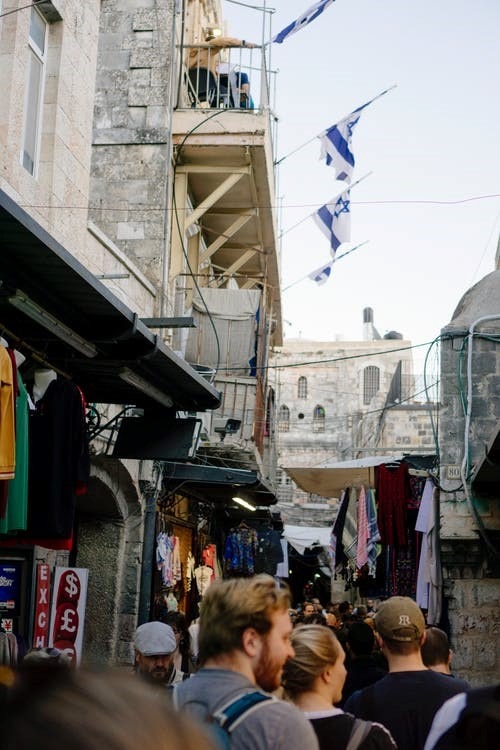
Basic Hebrew Phrases for Tourists

The students who take part in our Hebrew distant learning courses often have Israel on their must-visit lists. You don’t need to have native fluency to enrich your travels, as knowing a few basic phrases can go a long way.
Recommended Reading: 6-romantic-phrases-in-hebrew
Even if you haven’t had the chance to formally learn Hebrew, it’s possible to have a memorable trip to Israel with the help of the phrases we’re sharing with you:
1. Shalom (שלום)
One of the most well-known Hebrew words around the world, shalom, literally translates to ‘peace’. In daily usage, it can be used in place of both ‘hello’ and ‘goodbye’.
2. Boker/Layla/Erev Tov (ערב טוב / לילה טוב / בוקר טוב)
Boker tov, layla tov, and erev tov can be used to wish ‘good morning’, ‘good night’, and ‘good evening,’ respectively.
3. Todah (תודה)
Todah means ‘thank you’ or simply ‘thanks’. If you want to thank someone more enthusiastically, you can also say todah rabah (תּוֹדָה רַבָּה), which means ‘thank you very much.
4. Ma Nishma (מה נשמע)
The literal translation of ma nishma is “What’s new?”, but it’s an informal phrase typically used to ask someone, “How are you?”
5. Lehitraot (להתראות)
Lehitraot is another way of saying ‘goodbye’. You can use it in place of shalom when ending a conversation or concluding a meeting.
6. Hatzilu (הצילו)
Hatzilu means ‘help’. You can use it if there’s an emergency while you’re out and about and you need help from passersby.
7. Ani Lo Mevin (אני לא מבין)
If you don’t understand what someone is saying to your or showing you, you can use the phrase “Ani-lo-mevin”. It means “I don’t understand”.
8. Slikha (סליחה)
The literal translation of the word ‘slikha’ is ‘sorry’, but it’s used in any situation where you’d say, “Excuse me”.
9. Ani Mitztaer (אני מצטער)
If you want to apologize to someone, use the phrase “Ani mitztaer”. The feminine version of the phrase is “Ani mitztaeret”. It means “I’m sorry”.
10. Eifo Hasherutim (איפה השירותים)
When you need a restroom and can’t seem to find one, asking “Eifo hasherutim?” from the nearest person is likely to point you in the right direction. Eifo is Hebrew for ‘where?’ and hasherutim translates to ‘restroom’ or ‘washroom’.
11. Yesh Li Alergiya Le (יש לי אלרגיה ל)
If you’re eating out, avoid any allergens by telling your waiter “Yesh li alergiya le”, and following it with the name or picture of the item you’re allergic to. The phrase means “I have an allergy to”.
12. Haya Mamash Taim (היה ממש טעים)
Appreciate the cooking skills of your host, or the restaurant’s chef, by saying the phrase “Haya mamash taim”. The phrase literally translates to “Was really tasty” and can be used to express how much you enjoyed a meal.

As a modern Hebrew institution, Ulpan-Or helps people all over the world learn Hebrew online with native teachers on their own time. We’ve got beginner Hebrew courses you can use to learn Hebrew in the USA, Canada, UK, and Australia.
Start learning Hebrew with expert Hebrew language instructors. Contact us today to know more.



